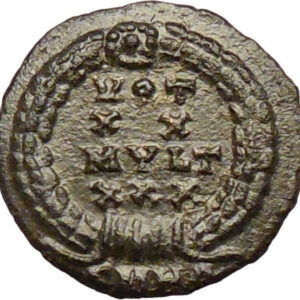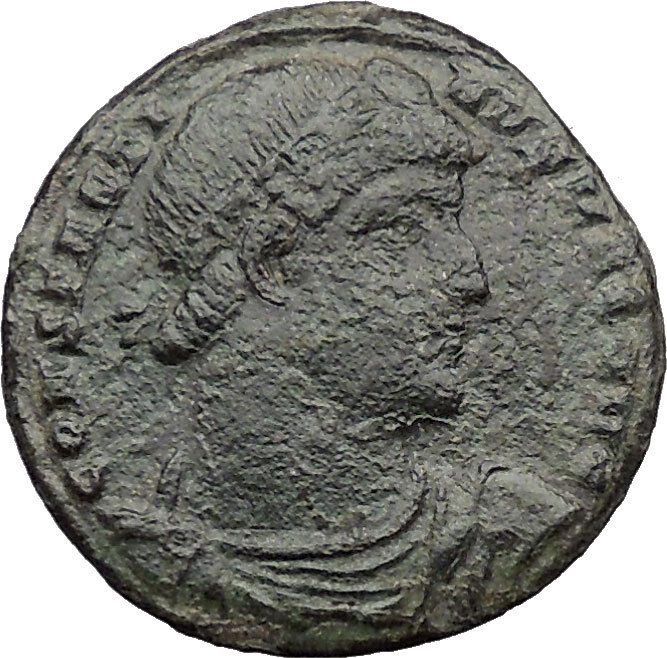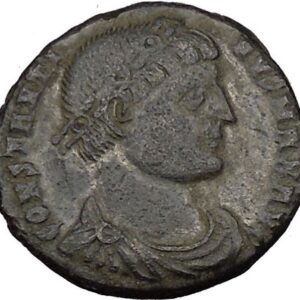|
Salonina – Roman Empress: 253-268 A.D. – Wife of Gallienus
Bronze Antoninianus 21mm (4.13 grams)
Struck at the mint of Lyons mint 258 A.D.
Reference: RIC V-1, 5 Lyons, Elmer 96, Sear 10631.
SALONINA AVG, diademed and draped bust right, resting on crescent.
DEAE SEGETIAE, statue of Segetiae or Ceres, nimbate, standing facing in four-columned temple, both hands raised.
You are bidding on the exact item pictured, provided with a Certificate of Authenticity and Lifetime Guarantee of Authenticity.
In ancient Roman religion, Ceres was a goddess of agriculture, grain crops, fertility and motherly relationships. Her cult took many forms. She was the central deity in Rome’s so-called plebeian or Aventine Triad, and was paired with her daughter Proserpina in what Romans described as “the Greek rites of Ceres”. She played an essential role in Roman marriage and in funeral rites. Her seven-day April festival of Cerealia included the popular Ludi Ceriales (Ceres’ games). She was honoured in the May lustration of fields at the Ambarvalia festival, and at harvest-time. Her functions and cults were held equivalent to those of the Greek goddess Demeter, whose mythology she came to share.
 Julia Cornelia Salonina (d. 268, Mediolanum) was an Augusta, wife of Roman Emperor Gallienus and mother of Valerian II, Saloninus, and Marinianus. Julia Cornelia Salonina (d. 268, Mediolanum) was an Augusta, wife of Roman Emperor Gallienus and mother of Valerian II, Saloninus, and Marinianus.
Julia Cornelia Salonina’s origin is unknown. According to a modern theory, she was born of Greek origin in Bithynia, then part of the province of Bithynia et Pontus, Asia Minor. However, there exists some scepticism on that. She was married to Gallienus about ten years before his accession to the throne. When her husband became joint-emperor with his father Valerian in 253, Cornelia Salonina was named Augusta.
Cornelia was the mother of three princes, Valerian II, Saloninus and Marinianus. Her fate, after the murder of Gallienus, during the siege of Mediolanum in 268, is unknown. It is likely that either her life was spared or the she was executed together with other members of her family, at the orders of the Senate of Rome.
Her name is reported on coins with Latin legend as Cornelia Salonina; however, from the Greek coinage come the names Iulia Cornelia Salonina, Publia Licinia Cornelia Salonina, and Salonina Chrysogona (attribute that means “begotten of gold”).
|





 Julia Cornelia Salonina (d. 268, Mediolanum) was an Augusta, wife of Roman Emperor Gallienus and mother of Valerian II, Saloninus, and Marinianus.
Julia Cornelia Salonina (d. 268, Mediolanum) was an Augusta, wife of Roman Emperor Gallienus and mother of Valerian II, Saloninus, and Marinianus.




